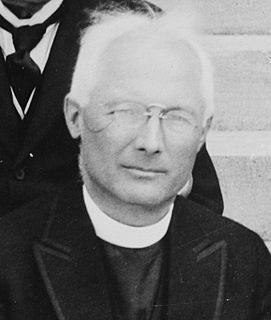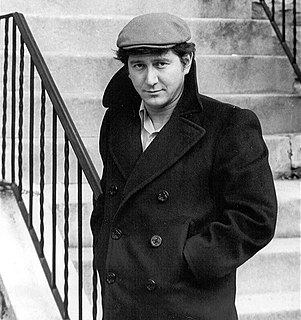A Quote by Grace Zaring Stone
in religion even when the reward is far the hope is so immediate.
Related Quotes
I should like to believe my people's religion, which was just what I could wish, but alas, it is impossible. I have really no religion, for my God, being a spirit shown merely by reason to exist, his properties utterly unknown, is no help to my life. I have nor the parson's comfortable doctrine that every good action has its reward, and every sin is forgiven. My whole religion is this: do every duty, and expect no reward for it, either here or hereafter.
And then the spirit brings hope, hope in the strictest Christian sense, hope which is hoping against hope. For an immediate hope exists in every person; it may be more powerfully alive in one person than in another; but in death every hope of this kind dies and turns into hopelessness. Into this night of hopelessness (it is death that we are describing) comes the life-giving spirit and brings hope, the hope of eternity. It is against hope, for there was no longer any hope for that merely natural hope; this hope is therefore a hope contrary to hope.
Hope is critical to both faith and charity. When disobedience, disappointment, and procrastination erode faith, hope is there to uphold our faith. When frustration and impatience challenge charity, hope braces our resolve and urges us to care for our fellowmen even without expectation of reward. The brighter our hope, the greater our faith. The stronger our hope, the purer our charity.
[Religion] attacks us in our deepest integrity - the core of our self-respect. Religion says that we would not know right from wrong, we would not know an evil, wicked act from a decent human act without divine permission, without divine authority or without, even worse, either the fear of a divine punishment or the hope of a divine reward. It strips us of the right to make our own determination, as all humans always have, about what is and what is not a right human action.
I resist all established beliefs. My religion basically is to be immediate, to live in the now. It's an old cliche, I know, but it's mine. I envy people of faith. I'm incapable of believing in anything supernatural. So far, at least. Not that I wouldn't like to. I mean, I want to believe. I do pray. I pray to something ... up there. I have a God sense. It's not religious so much as superstitious. It's part of being human, I guess ... Do unto others: How much deeper into religion do we really need to go?
True religion is when you serve God to get nothing else but more of God. Many people use religion as a way of getting something else from God they want-blessings, rewards, even escape from judgement. This is wearisome to us, and to God. But when God is His own reward, Christianity becomes thrilling. Sacrifice becomes joy.
It is good to love God for hope of reward, but it is better to love God for love's sake; and the prayer goes: O Lord, I do not want wealth nor children nor learning. If it be Thy will, I shall go from birth to birth. But grant me this, that I may love thee without the hope of reward 'love' unselfishly for love's sake.






































